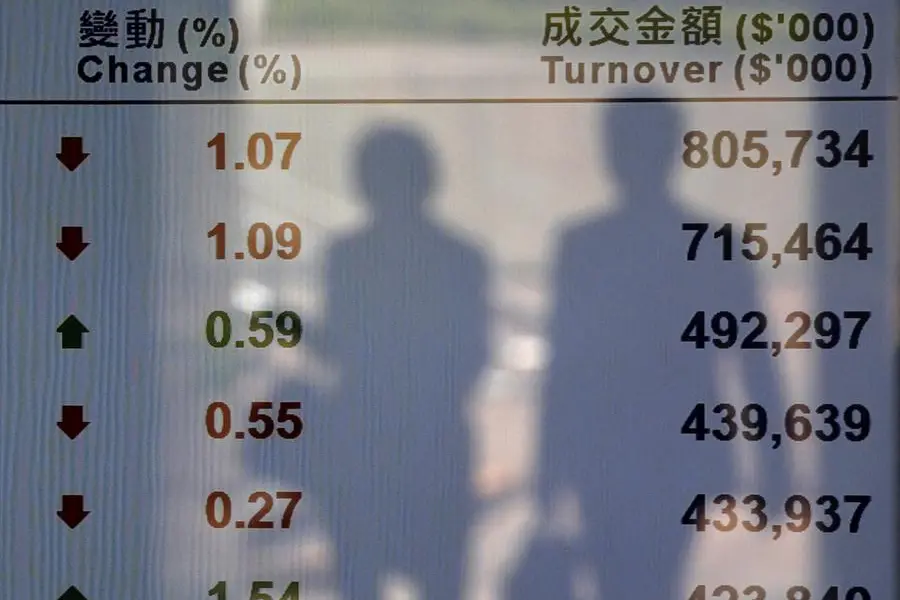PHOTO
China's blue chip index wiped out all of its 2023 gains while Hong Kong's key benchmark tumbled to a near six-month low, as a widening U.S.-China trade and technology dispute added to already weak sentiment around U.S debt ceiling negotiations.
China's CSI 300 Index slipped 0.22% , while the Shanghai Composite Index closed down 0.11%, both posting three-day losing streak.
In Hong Kong, the Hang Seng Index lost 1.93% while the Hang Seng China Enterprises Index slumped 2.23%, with tech stocks including Tencent, Alibaba and Meituan leading the decline.
The sell-off in tech shares has accelerated recently on concerns over an escalating Sino-U.S. dispute over technology, broadening a long-standing trade dispute between the two powerhouse economies.
Earlier this week, a U.S. lawmaker urged the U.S. Commerce Department to put trade curbs on Chinese memory chip maker Changxin Memory Technologies (CXMT) after Beijing's ban on the sale of some chips by U.S.-based Micron Technology Inc.
Adding to the gloom, Japan plans to tighten controls on semiconductor exports to China.
"The sell-off looks like a deja vu of October last year," said Yuan Yuwei, a hedge fund manager at Water Wisdom Asset Management.
"The reason this time could be investors shifting capital to Japan as U.S. accelerates the restructuring of its supply chain."
Global funds remain significantly underweight for mainland China and inflows were muted, HSBC said in a note on Thursday. Both Chinese and Hong Kong markets have been under pressure over recent weeks due to mounting evidence of weakness in China's economy, with April data showing the Asian giant was already past its post-pandemic boost.
China's currency wasn't spared the selling, with the offshore yuan weakening to a near-six month low of 7.0903 in the afternoon trading session.
Concerns over the slow progress in raising the U.S. debt ceiling, which has raised the risk of a damaging U.S. government default, have also hobbled overall market sentiment. "We haven't seen anything concrete (on debt ceiling), markets are going to fret even more so," said David Chao, global market strategist (Asia Pacific) at Invesco.
Linus Yip, chief strategist of First Shanghai Securities said the uncertainties on the U.S. side, including the upcoming Federal Open Market Committee meeting for June, is likely to continue to cause volatility in the Hong Kong market. (Reporting by Summer Zhen; Additional reporting by Jason Xue in Shanghai and Georgina Lee in Hong Kong; Editing by Shri Navaratnam and Tom Hogue)





















